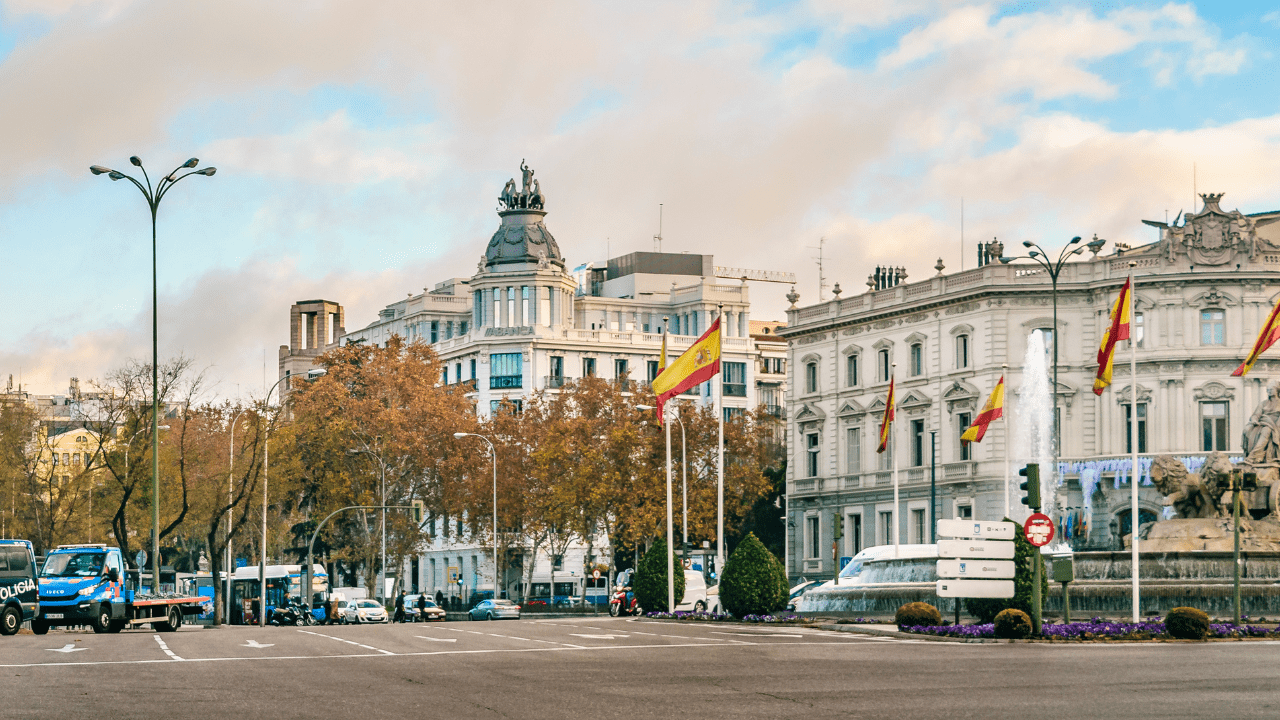Is It Worth Moving to Spain?

Introduction to Moving to Spain
Spain, located on the Iberian Peninsula in Southwestern Europe, is a country known for its diverse landscapes, vibrant culture, and temperate climate. From the sun-drenched beaches of the Costa del Sol to the bustling streets of Madrid and the historic architecture of Barcelona, Spain offers a unique blend of modernity and tradition. This Mediterranean nation experiences a range of climates, from the warm, dry summers of the interior to the mild, wet winters of the northern coast, making it a desirable destination for many expatriates.
People are drawn to Spain for various reasons. Its relaxed lifestyle, characterized by a strong emphasis on work-life balance, is a significant attraction. Spain’s cost of living is relatively affordable compared to other Western European countries, which appeals to those seeking a comfortable yet economical lifestyle. Additionally, Spain’s diverse job market provides ample work opportunities, especially in sectors such as tourism, education, and technology.
Spain’s rich cultural heritage is another compelling factor. With a history that spans millennia, the country boasts numerous UNESCO World Heritage sites, a wealth of festivals, and culinary traditions that are celebrated worldwide. The Spanish way of life, with its famous siestas, tapas culture, and flamenco music, offers a unique and immersive experience for those considering relocation.
This blog post will delve into several key aspects to help you decide if moving to Spain is the right choice for you. We will explore the practicalities of relocation, including visa requirements and cost of living, the job market, and the quality of life. By examining these factors, you will gain a comprehensive understanding of what life in Spain entails, enabling you to make an informed decision about moving to this captivating country.
Cost of Living in Spain
When considering a move to Spain, understanding the cost of living is crucial. Spain is known for its relatively affordable lifestyle compared to other popular expatriate destinations in Europe. Housing costs, for instance, vary significantly depending on the region. In major cities like Madrid and Barcelona, rent for a one-bedroom apartment in the city center can range from €900 to €1,500 per month. In contrast, smaller towns or rural areas offer more affordable options, with rents often between €400 and €700.
Utilities, including electricity, heating, cooling, water, and garbage, for an 85m2 apartment typically cost around €100 to €150 per month. Internet services add approximately €30 to €50 monthly. Groceries are generally affordable, with a monthly budget of around €200 to €300 being sufficient for a single person. Fresh produce is particularly cost-effective, thanks to local markets and favorable growing conditions.
Transportation in Spain is also budget-friendly. A monthly public transportation pass in cities like Madrid or Barcelona costs about €55 to €60. Owning a car incurs additional expenses such as fuel, which is around €1.30 per liter, and insurance, approximately €400 to €600 annually.
Healthcare in Spain is of high quality and relatively inexpensive for residents. Public healthcare is largely funded through social security contributions, which expatriates must pay if they work in Spain. Private health insurance is an option, with average premiums ranging from €50 to €150 per month, depending on coverage.
Leisure activities and dining out are affordable and offer great value. A meal at an inexpensive restaurant typically costs around €10 to €15, while a three-course meal for two at a mid-range restaurant ranges from €30 to €50. Cultural and recreational activities, including cinema tickets, gym memberships, and local events, are reasonably priced, fostering an enjoyable lifestyle.
Taxes and social security contributions are important considerations. Spain has a progressive tax system, with income tax rates ranging from 19% to 45%. Social security contributions are mandatory, with employees contributing around 6.35% and employers about 29.90% of gross salary. These contributions fund public healthcare and pensions, vital components of Spain’s social safety net.
Quality of Life in Spain
The quality of life in Spain is often highlighted by its exceptional work-life balance, robust healthcare system, and comprehensive education options. Spanish society places a strong emphasis on balancing work with personal life, which is reflected in the traditional practice of ‘siesta,’ allowing for rest during the afternoon. This approach is designed to promote overall well-being and reduce work-related stress.
Spain’s healthcare system is another cornerstone of its high quality of life. It is well-regarded for being both accessible and affordable, offering universal coverage through a mix of public and private services. This ensures that both residents and expatriates receive the medical care they need without excessive financial burden.
Education in Spain is diverse and inclusive, with a range of options from public schools to private and international institutions. The country boasts a high literacy rate and provides numerous opportunities for higher education and vocational training. This robust educational framework supports lifelong learning and personal development.
Safety is a critical component of Spain’s quality of life. The country has relatively low crime rates and a strong public safety infrastructure. This makes it a secure environment for families, individuals, and retirees alike. The presence of community policing and a proactive approach to public safety further enhances the sense of security.
Spain is also famous for its cuisine, which is both delicious and varied. From tapas to paella, the local food culture emphasizes fresh ingredients and traditional cooking methods. Eating out is not just about nourishment but also about social interaction and enjoyment, contributing to a vibrant community life.
Spain’s festivals and public celebrations are integral to its cultural fabric. Events such as La Tomatina and Las Fallas provide unique experiences that foster a sense of community and belonging. These colorful and lively festivals bring people together, promoting social cohesion and cultural appreciation.
The public transportation network in Spain is extensive and efficient, offering convenient travel options across the country. This network includes high-speed trains, buses, and metro systems that facilitate easy access to various regions, enhancing mobility and reducing the need for personal vehicles.
The friendliness of the local population and the ease of integrating into Spanish society cannot be overstated. Spaniards are known for their warm hospitality and openness towards newcomers. This welcoming attitude makes it easier for expatriates to adapt to their new environment, fostering a sense of belonging and community.
Overall, the Spanish lifestyle promotes well-being and a high standard of living through a combination of cultural richness, social support, and practical amenities. Whether you are seeking a relaxed pace of life, excellent healthcare, or an engaging social environment, Spain offers a compelling option for those considering relocating.
Challenges and Considerations for Moving to Spain
Relocating to Spain offers many exciting opportunities, but it is not without its challenges. One of the primary obstacles expatriates might encounter is the language barrier. While English is spoken in tourist areas and major cities, proficiency in Spanish is crucial for effective daily interactions and professional opportunities. From grocery shopping to socializing and navigating official processes, speaking the local language can significantly ease the transition. Enrolling in Spanish language courses or utilizing online resources can be beneficial for newcomers.
Navigating Spain’s bureaucratic landscape is another significant challenge. Obtaining residency permits, for instance, involves a series of steps that can be time-consuming and complex. Prospective residents must be prepared for paperwork and potential delays. Additionally, understanding and accessing the healthcare system can be daunting initially. Spain offers robust public healthcare, but it requires registration and familiarity with local procedures. Private health insurance is another option, often chosen by expatriates for its convenience and comprehensive coverage.
Cultural differences may also impact daily life in Spain. Spanish lifestyle and social norms can differ significantly from those in other countries. For instance, the concept of “siesta” – a midday break – influences business hours and daily routines. Furthermore, the Spanish approach to time is often more relaxed, which can affect scheduling and punctuality. Embracing these cultural nuances by adopting a flexible mindset can help expatriates adjust more smoothly.
To overcome these challenges, expatriates can tap into various resources. Numerous online forums and expatriate communities offer advice and support for those new to Spain. Local expatriate associations and social groups can provide networking opportunities and practical assistance. Government websites and consulates also offer valuable information for navigating legal and bureaucratic requirements. By leveraging these resources and preparing in advance, expatriates can better manage the complexities of their move and enjoy a more seamless transition to life in Spain.
RELATED POSTS
View all


